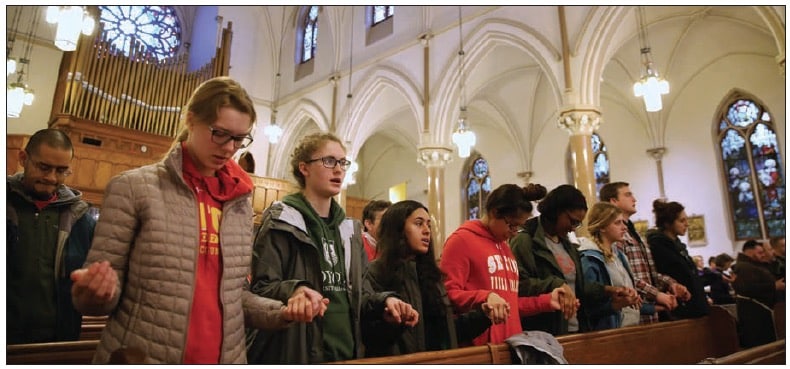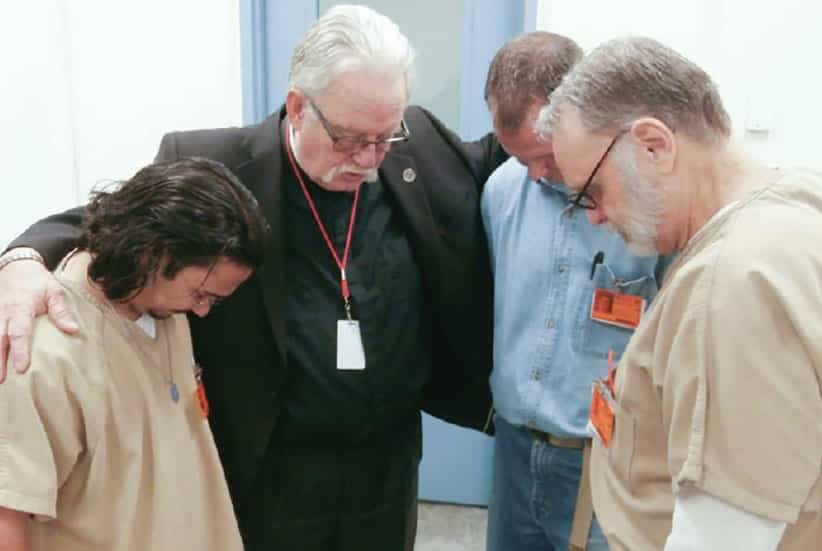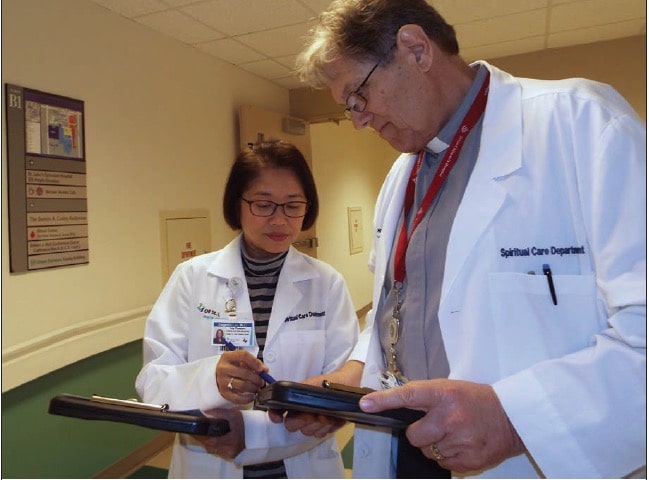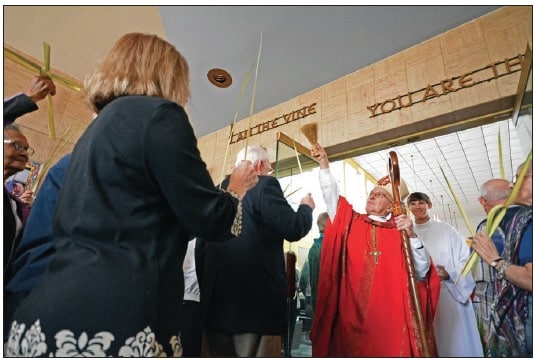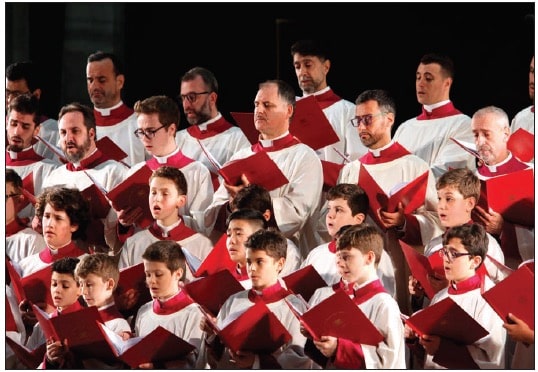Cardinal Bernard F. Law died Dec. 20 in Rome at the age of 86. He retired in 2011 after serving as the archpriest of St. Mary Major Basilica in Rome since 2004.
Tainted as the lead figure in the clerical sex abuse crisis in the United States, Cardinal Law resigned as archbishop of Boston in 2002 after it was uncovered that, during his tenure, the Archdiocese of Boston mishandled and failed to report sexual abuse by clergy to civil officials.
It is an understatement to say Cardinal Law’s legacy is complex. Arguably the most influential U.S. bishop of his generation, Cardinal Law also became the most infamous. While the majority of his ministry reflects the zeal of an evangelist and activist and clarity of a teaching bishop who spent his life in service to the Church, his name became synonymous with the systematic failure of many Church leaders who failed to adequately handle the clergy sex abuse crisis as it grew beyond their capacity to conceal.
A 2003 report from Massachusetts’ attorney general showed that the Archdiocese of Boston — under Cardinal Law’s watch — manifested “an institutional reluctance to adequately address the problem and, in fact, made choices that allowed the abuse to continue.” At the time of his resignation, Cardinal Law wrote, “To all those who have suffered from my shortcomings and mistakes I both apologize and from them beg forgiveness.”
Formed by diversity
Born Nov. 4, 1931, in Torreón, Mexico, Bernard Francis Law was the only child of Bernard and Helen (Stubblefield) Law. His father operated an airline company. Frequent moves throughout Latin America in his early years, on account of his father’s work, put him in contact with a variety of cultures and enabled him to grow up bilingual.
Although Law began high school in Panama, he spent the last three years attending school in the U.S. Virgin Islands, where his father had taken up a job. As a student, most of his teachers and peers were black. This experience prepared him to serve later as a priest in the racially charged South of the 1960s. In his 1949 address as valedictorian at the Virgin Islands Charlotte Amalie High School, Law said, “the ugly marks of ignorance and prejudice are not rampant here as in other less fortunate places. … Acceptance does not depend on race, color or creed. [One] is free to develop his innate abilities; he may aspire to any height.” As a young priest, Cardinal Law worked hard to advocate for these rights and the dignity of African-Americans in the segregated South.
Cardinal Law’s vocation to the priesthood blossomed during his years as a student at Harvard University, where he was active in St. Paul’s Church, which tends to Catholics of the university community. On May 21, 1961, he was ordained a priest for service in the Diocese of Natchez-Jackson in Mississippi. He quickly rose to prominence within that local Church. One priest described him then as “extremely bright, engaging, personable, a man who got energized by work rather than tired and a great gatherer of diverse people.”
As a priest, Cardinal Law held many positions in the then-statewide Mississippi diocese, most notably serving as editor of the Mississippi Register, the diocesan newspaper, which took on an unapologetically anti-segregation stance under his leadership. This resulted in, among other things, the loss of many subscribers. For his vocal support of civil rights, he was the recipient of death threats.
His family’s status as immigrants in his early years formed him to have a heart for those seeking better lives in the United States. In the early 1970s, then-Bishop Law arranged to resettle a host of Vietnamese immigrants, all members of the Congregation of the Mother of the Redeemer, in his Missouri diocese. Law purchased a seminary complex in Carthage, Missouri, from the Oblates of Mary Immaculate for $1 for use as the immigrant religious’ new home. Upwards of 100,000 people still gather there each August as part of the order’s annual Marian Days festival and pilgrimage.
Leader among bishops
Law’s membership on the Mississippi Human Rights Council and his work with civil rights advocacy put him in touch with leaders of many different Protestant denominations. He became a pioneer in ecumenical relations in the years following the Second Vatican Council (1962-65), which opened up possibilities for dialogue between the Catholic Church and other Christians. In 1968, he was chosen as the ecumenical officer for the U.S. bishops’ national conference. His work in ecumenism continued in a variety of capacities as a bishop and cardinal, such as when he was chosen by the Holy See in 1981 to oversee a program whereby former Episcopal priests could be accepted into the Catholic priesthood.
| Church leaders react |
|---|
|
“I recognize that Cardinal Law’s passing brings forth a wide range of emotions on the part of many people. I am particularly cognizant of all who experienced the trauma of sexual abuse by clergy, whose lives were so seriously impacted by those crimes, and their families and loved ones. To those men and women, I offer my sincere apologies for the harm they suffered, my continued prayers and my promise that the Archdiocese will support them in their effort to achieve healing.”
— Cardinal Seán P. O’Malley, OFM Cap, archbishop of Boston
“At this time especially we keep close in our prayer the brave survivors of sexual abuse. Their witness would lead to a comprehensive response from the Church in the United States to protect and heal the deep wounds of abuse. I pray they may find strength and peace in the mercy of Christ.”
— Cardinal Daniel N. DiNardo, archbishop of Galveston-Houston and president of the U.S. Conference of Catholic Bishops
|
Blessed Pope Paul VI named Law bishop of the Diocese of Springfield-Cape Girardeau in Missouri in 1973. In 1984, Pope St. John Paul II appointed him the fifth archbishop of Boston, making him a cardinal the following year. He quickly became one of John Paul’s key point men, his influence felt locally, nationally and globally.
Boston’s emerging multicultural landscape under his tenure gave Cardinal Law opportunity to continue his advocacy on behalf of migrants. For example, he wrote a letter of appeal to President George H.W. Bush on behalf of Haitian immigrants.
A particularly striking sentence from that letter remains as relevant today as it was 25 years ago: “The sad memory of Jews being refused entry before World War II should teach us that never again should we turn our back on a human being pleading for our help and hospitality.”
For many years Cardinal Law was a voting member of the Holy See’s Congregation for Bishops — a position through which he left a major mark on the American episcopacy. Cardinal Law was also a member of numerous other Vatican dicasteries.
Cardinal Law remained vocal on human rights, immigration, racism and violence. He was also a staunch defender of Church teaching when it came to issues like a growing call for the ordination of women or defense of marriage as more than “just another ‘lifestyle.'” He advocated for maintaining Catholic identity in Church institutions of higher learning.
In 2000, in his homily at the funeral of his friend New York’s Cardinal John J. O’Connor, attended by then-President Bill Clinton and future Secretary of State Hillary Clinton, among other dignitaries, Cardinal Law made it clear the Church must always be unambiguously pro-life. Cardinal Law took seriously the bishop’s role as teacher of the Faith. It was his express concern at the 1985 Synod of Bishops, regarding the crisis of formation of Catholics, that resulted in the publication of the Catechism of the Catholic Church.
Spotlight on failure
History will put Cardinal Law’s legacy in perspective. Like many bishops of his time, he relied on the advice of experts in the psychological field who said sexual abuser priests could be treated and returned to ministry, like those with other maladies such as alcoholism. But one of Cardinal Law’s primary faults in the crisis was his failure as an administrator, combined with being ill-served by many members of his staff in whom he delegated responsibilities and gave his full trust and confidence.
What blew up in 2002 as the clergy sexual abuse crisis in the United States, with Boston as its epicenter, was the result of a failure to understand the nature and scope of the crisis, combined with a misguided sense of attempting to preserve the Church from public scandal. And Cardinal Law was fiercely loyal to his priests — as it turned out, to a fault. In the end, failures of leaders, such as those in Boston, left the Church more vulnerable and made the clergy sex abuse scandal far worse.
When the crisis first broke, Cardinal Law wrote in a statement: “Bewilderment has given rise to anger and distrust. In the process, my credibility has been publicly questioned and I have become for some an object of contempt. I understand how this is so, and I am profoundly sorry that the inadequacy of past policies and flaws in past decisions have contributed to this situation.”
Law’s longtime secretary, Msgr. Paul McInerny, once described Cardinal Law as “thoroughly a man of the Church.” Combine that with a shortsighted vision for preserving it from scandal, and one finds what led to Cardinal Law’s very public fall from grace, a fall that gave way to the scandal that continues to rock the Church in the United States. According to the Boston Globe, not long before his 2002 resignation, when asked what he would have done differently in life, Cardinal Law wrote: “Obviously, I wish I would have had the insight I have now about many problems, especially the terrible scourge of the sexual abuse of children. Hindsight would have avoided some horrible mistakes.”
Per the Vatican, Cardinal Law’s funeral will be Dec. 21 at St. Peter’s Basilica, with Cardinal Angelo Sodano, head of the College of Cardinals, presiding. Pope Francis will celebrate the rite of commendation. Burial will be at Rome’s St. Mary Major Basilica.
Michael R. Heinlein is editor of Simply Catholic. Follow him on Twitter @HeinleinMichael.


